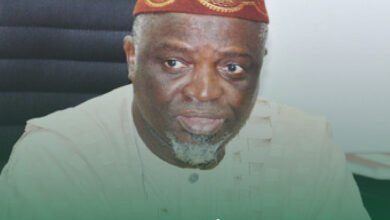
The recent proposal to create Orlu State in Nigeria’s southeastern geopolitical zone has reignited a long-standing debate: should all regions in Nigeria have the same number of states?
This seemingly simple question has significant implications for the country’s political landscape and development trajectory.
The House of Representatives on Thursday June 6, 2024 took a step towards establishing a new state in the southeast.
Lawmakers passed a bill for the first reading of the Orlu State creation proposal.
Sponsored by Ikenga Ugochinyere, a member representing Ideato North/Ideato South Federal Constituency in Imo State, the bill now awaits a second reading.
The draft bill proposes amending the 1999 Constitution (as amended) to increase the number of states in the federation from 36 to 37.
The new state, carved out of Imo, Abia, and Anambra States, would have Orlu as its capital city. The bill also seeks to include 28 local government areas within the new state’s boundaries.
Ugochinyere, the lead sponsor and a member of the Peoples Democratic Party, appealed to his colleagues in the National Assembly to support the bill’s passage through a second reading.
The Case for Equality
Those who support equal state allocation argue for a more balanced national assembly. “With an equal number of states per region,” says Dr. Nnenna Nwosu, a political scientist, “each area gains a stronger voice in federal decision-making. This fosters a more equitable distribution of resources and a sense of national unity.”
Additionally, creating new states can empower marginalized groups within a region dominated by a single large ethnicity.
A new state, carved out from an existing one, could provide a platform and resources for a smaller nationality to flourish, as argued by human rights lawyer Chimaobi Okafor: “It’s about ensuring all Nigerians have a say in their future, regardless of their ethnicity.”
The Challenge of Viability
Opponents however argue that state creation shouldn’t be solely driven by achieving regional parity. They raise concerns about the economic viability of some proposed states.
Akindele Ademola, an agricultural economist, warns: “Carving out new administrative units requires significant resources for infrastructure development and bureaucratic functions. If a new state lacks a strong economic base, it might struggle to provide essential services for its citizens, ultimately hindering development.”
Some argue that resources could be better spent on improving existing states, regardless of region, by focusing on infrastructure, education, and healthcare.
Financial analyst Ngozi Okonkwo proposes, “Let’s strengthen the existing states first. We can revisit the question of new states once they’re functioning more efficiently.”
A Delicate Topic
Public commentators believe State creation is a double-edged sword when it comes to ethnicity.
While it can empower marginalized groups, it can also exacerbate existing tensions if boundaries don’t reflect cultural realities.
Drawing state lines that divide ethnic groups or force them into uncomfortable majority-minority dynamics can lead to social unrest and hinder national unity.
Professor Emeka Eze, a sociologist, cautions: “We must ensure state boundaries align with cultural realities to prevent further ethnic tensions.”
Quest for Balance
The South-East’s push for Orlu State reflects a long-standing feeling of marginalization within the Nigerian federation.
Currently, the North-West comprises seven states, while the North-East, North-Central, South-South, and South-West each have six. Only the South-East has five states.
There are suggestions that the South-West is pushing Oke-Ogun State, highlighting the challenges of achieving regional parity.
Unfortunately, a strict focus on equal numbers could create economically non-viable states, while a purely needs-based approach might leave some regions feeling politically underrepresented.
There’s no easy answer to the question of equal state allocation.
Open discussions and a commitment to national development, rather than purely political considerations, should guide future decisions on state creation.
As political commentator Bolanle Olawale concludes, “The debate shouldn’t be about numbers, but about creating states that empower Nigerians and contribute to the nation’s progress.”





